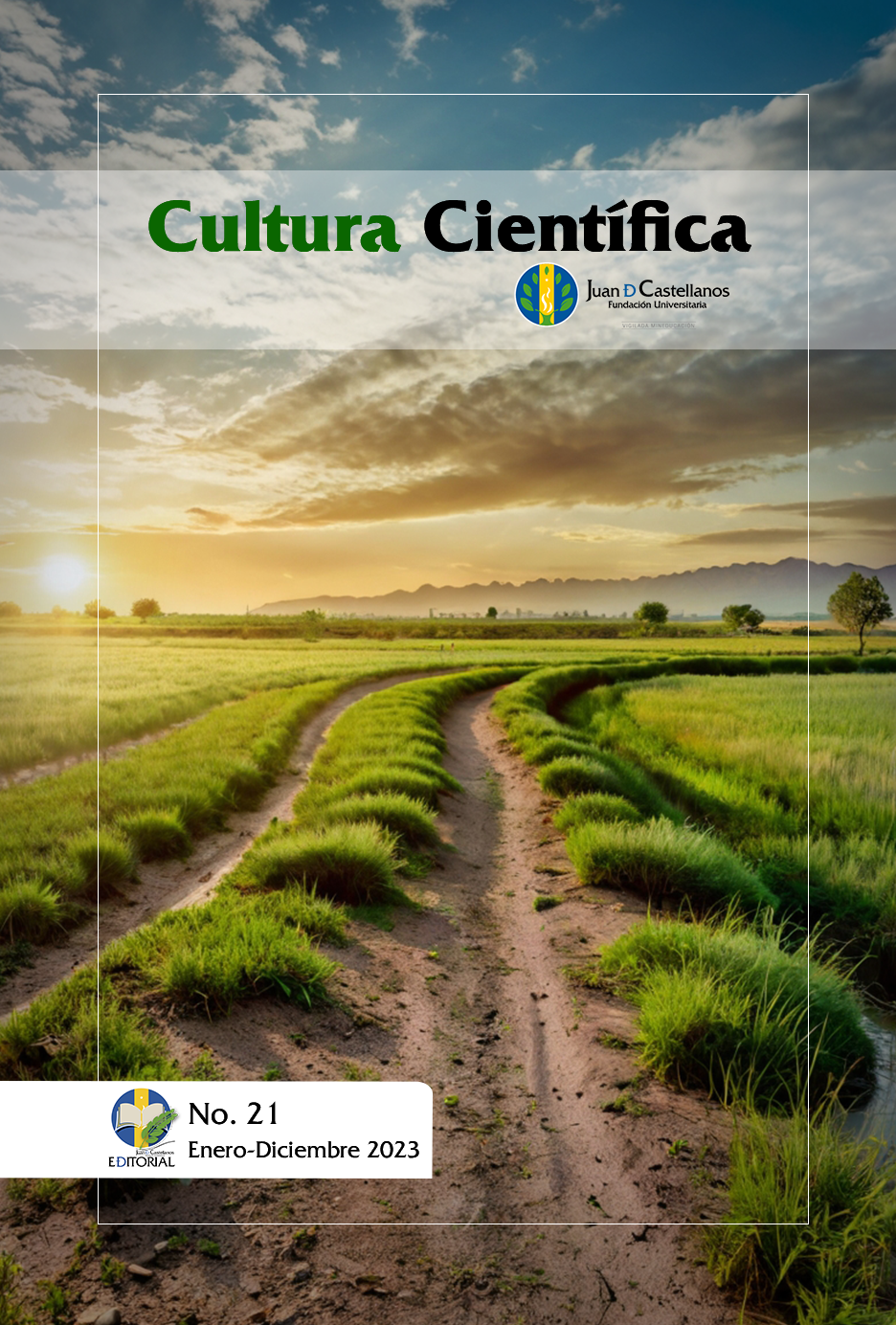DOI:
https://doi.org/10.38017/1657463X.824Keywords:
productivity, peasant, economy, projectsAbstract
Part of the proposals that stand for a new development plan in Colombia, aims to carry out the objectives established in the Peace Agreement signed in Havana, Cuba, in 2016. In this agreement, which promotes the paradigm of a stable and lasting peace, item number discusses the topic "Towards a New Colombian Countryside: Integral Rural Reform", which, motivated by its bets, seeks to strengthen rural production processes and its integrated mechanisms, oriented towards solidarity, family and peasant economies This research process aims to identify the potential of the municipality, its social and cultural patterns, supported by human capital options. It is also highlighted by a historical framework that reinforces the capabilities of the educational institution "Simon Bolivar", which distinguishes itself annually in its formation through various productive pedagogical projects. Such projects encompass needs and good cognitive business practices, transforming this municipality into a powerhouse of immaterial and gastronomic wealth. The above is considered from a holistic perspective, in an integral and transversal manner, which might be a position without limits to boost a possibility of family and rural economy at a large dimension, while keeping in mind the subjective and intersubjective knowledge acquired. However, in order to integrate a public and cultural policy that recognizes the efforts established in that territory, it becomes a priority to make academic efforts to make visible these rural bets of local-regional nature. This process will be based on a methodology with analytical paradigms, integrated by a qualitative approach and descriptive, hermeneutic and participatory action research typologies.
Downloads
References
Balcázar, F. (2013). Investigación acción participativa (IAP): Aspectos conceptuales y dificultades de implementación. En E. Restrepo (Comp.), Insumos para la investigación socio-cultural (pp. 102-113). Universidad Javeriana. https://ingridlondonosefair.files.wordpress.com/2014/03/reader-insumos.pdf
Banco de la República de Colombia. (1851). Geografía general, física y política de los Estados Unidos de Colombia. Estado de Boyacá. Provincia de Tunja. Biblioteca Nacional de Colombia. Imprenta Echeverría.
Departamento Administrativo Nacional de Estadística [DANE]. (2022). Departamento Administrativo Nacional de Estadística. Datos demográficos. Boyacá, Soracá. Censos 1993-2018. https://www.dane.gov.co/index.php/estadisticas-por-tema/pobreza-y-condiciones-de-vida/pobreza-multidimensional.
Departamento Nacional de Planeación. (2014). Estrategia de Implementación del Programa de Desarrollo Rural Integral con Enfoque Territorial. Producto de la colaboración prestada por RIMISP-Centro Latinoamericano para el Desarrollo Rural a la Misión para la Transformación del Campo (Departamento Nacional de Planeación), con el financiamiento del International Development Research Center (IDRC, Canadá). https://colaboracion.dnp.gov.co/CDT/Agriculturapecuarioforestal.
Departamento Nacional de Planeación. (2022). Colombia potencia mundial de la vida. Bases del Plan Nacional de Desarrollo 2022-2026. https://www.andi.com.co/Uploads/Bases%20PND2022-2026_compilado%20CEVC15-10-2022%20(15-11-2022%202y30)%20peq%20(1)_638051809081822444.pdf
Ministerio de Educación Nacional. (2012). Manual para la formulación y ejecución de planes de educación rural. Bogotá. D.C.
Ministerio de Educación Nacional. (2012). Proyectos pedagógicos productivos. Orientaciones pedagógicas para grados 6° y 7°. Bogotá D.C.
Minsalud. Ministerio de Salud de Colombia. (1986, 24 de febrero). Resolución número 02310. Procesamiento, composición, requisitos, transporte y comercialización de los derivados lácteos. Bogotá. D.C.
Muñoz, R. (2010). Producción y comercialización de yogurt como alternativa microempresarial en la cabecera municipal del municipio de la vega, departamento del cauca, macizo colombiano [tesis de pregrado, Universidad Nacional Abierta y a Distancia-UNAD]. Repositorio institucional UNAD. https://repository.unad.edu.co/handle/10596/20730
Ricoy, C. (2015). Contribución sobre los paradigmas de investigación. Educação, 31(1), 11-22. https://www.redalyc.org/pdf/1171/117117257002.pdf
Sandoval, C. (2015). Metodología de la investigación cualitativa. Instituto colombiano para el fomento de la educación superior, ICFES. Bogotá D.C.
UNESCO. (2015). Replantear la educación ¿Hacia un bien común mundial? Organización de las Naciones Unidas para la Educación, la Ciencia y la Cultura 7, Place de Fontenoy, 75352 PARÍS 07 SP, Francia.
Downloads
Published
How to Cite
Issue
Section
License
Copyright (c) 2024 Cultura científica

This work is licensed under a Creative Commons Attribution-NonCommercial-ShareAlike 4.0 International License.





